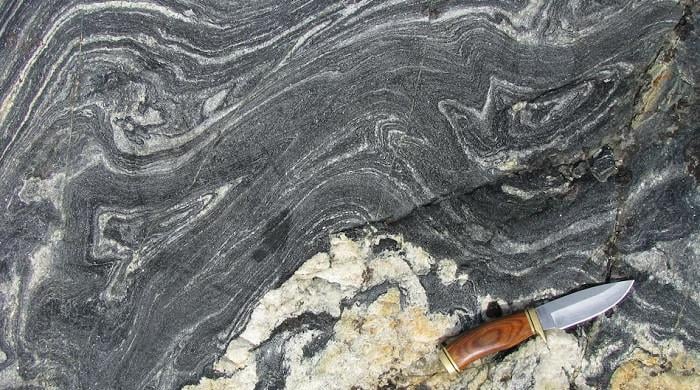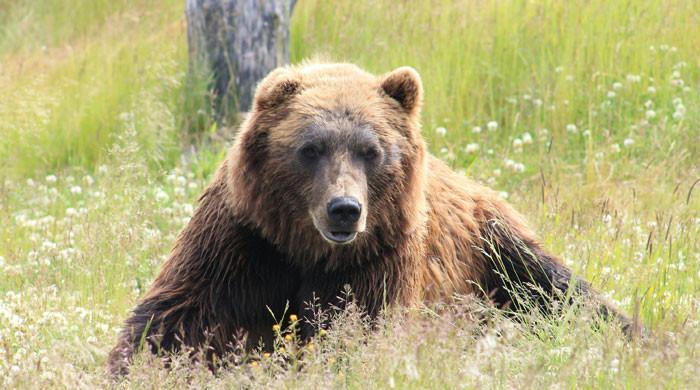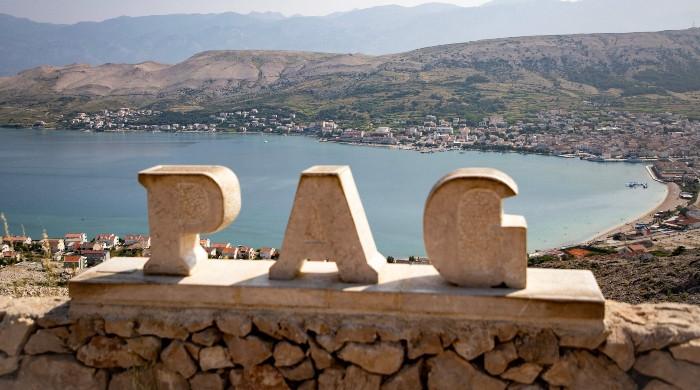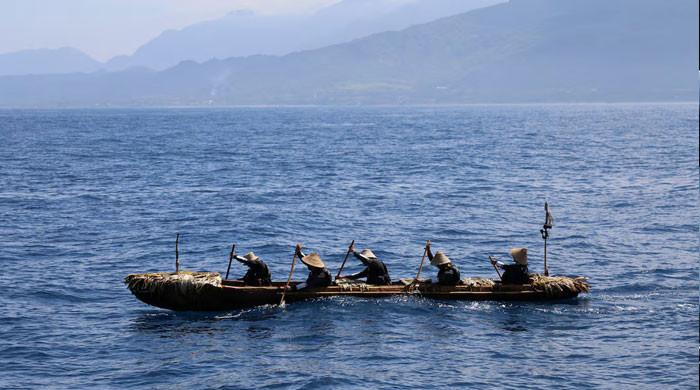In world's first, double-amputee Gurkha veteran tops mighty Mount Everest
Magar, 43, lost his legs in 2010 when he accidentally triggered an improvised explosive device during a patrol in Afghanistan
May 21, 2023
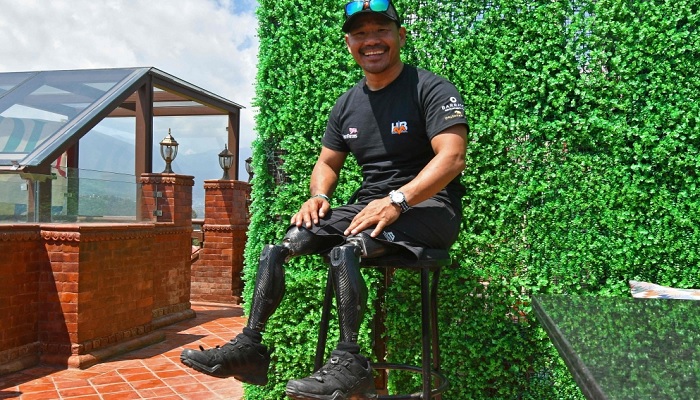
Hari Budha Magar, a Gurkha veteran, who suffered near-fatal injuries while serving with the British army in Afghanistan, Sunday pulled off the remarkable feat of becoming the first double above-the-knee amputee to summit Mount Everest, BBC reported.
"He reached the top of Sagarmatha at around 3 PM [Nepali time] on Friday. After successfully summiting the peak, he has now descended to the base camp, and will return to Kathmandu tomorrow (Monday)," Him Bista told AFP, using the Nepali name for Everest.
Magar, 43, lost his legs in 2010 when he accidentally triggered an improvised explosive device during a patrol in Afghanistan.
The incident occurred while he was serving with the Gurkhas, a revered unit of Nepali soldiers who have been fighting alongside the British Army for more than two centuries.
"When he woke up after the blast, the father of three said he felt like his life was finished but after taking up skiing, golfing, cycling and climbing, regained his confidence," BBC reported.
He kicked off his quest to conquer the big rock 11 days ago with a team of Nepalese climbers, led by Krish Thapa, himself a former Gurkha and SAS mountain troop leader.
"When things got tough, he said it was the thought of his amazing family and everyone who had helped him that kept him going," according to the report.
Two below-the-knee amputees have reached the peak in the past -- New Zealander Mark Inglis in 2006 and China's Xia Boyu in 2018.
Magar was fitted with prosthetic legs and aside from kayaking around the Isle of Wight climbed several peaks including Morocco's Mount Toubkal as well as Ben Nevis in Scotland and Mont Blanc in Europe.
A Nepalese law banning double amputees, and also blind people, from mountaineering, had been holding the former corporal back from running up to the top of the Everest. The law was revoked by Nepal's top court in 2018 as Magar and others mounted pressure on authorities for allowing them to go up the world's tallest mountain.
The law was not in place when Inglis climbed the 8,849-metre (29,032-foot) peak.
"As long as you can adapt your life according to the time and the situation, we can do anything we want. There is no limit, the sky is the limit," Magar told AFP last month before heading to the Everest base camp.
On his website, his mission was promoted under the slogan "no legs, no limits".
Nepal, renowned for being home to eight of the world's top ten highest peaks, attracts numerous adventurers every spring. When temperatures are moderate and the perilous Himalayan winds are relatively tranquil, many individuals embark on challenging expeditions in the region.
Bigyan Koirala, a tourism department official, told AFP that nearly 450 climbers have already scaled Everest this season.
Authorities have issued 478 permits to foreign climbers this year, with each paying an $11,000 fee.
Since most will need a guide, more than 900 people -- a record - were expected to try to summit during the season, which runs until early June.
The mountain has so far claimed the lives of nine climbers in the ongoing mountaineering season,






